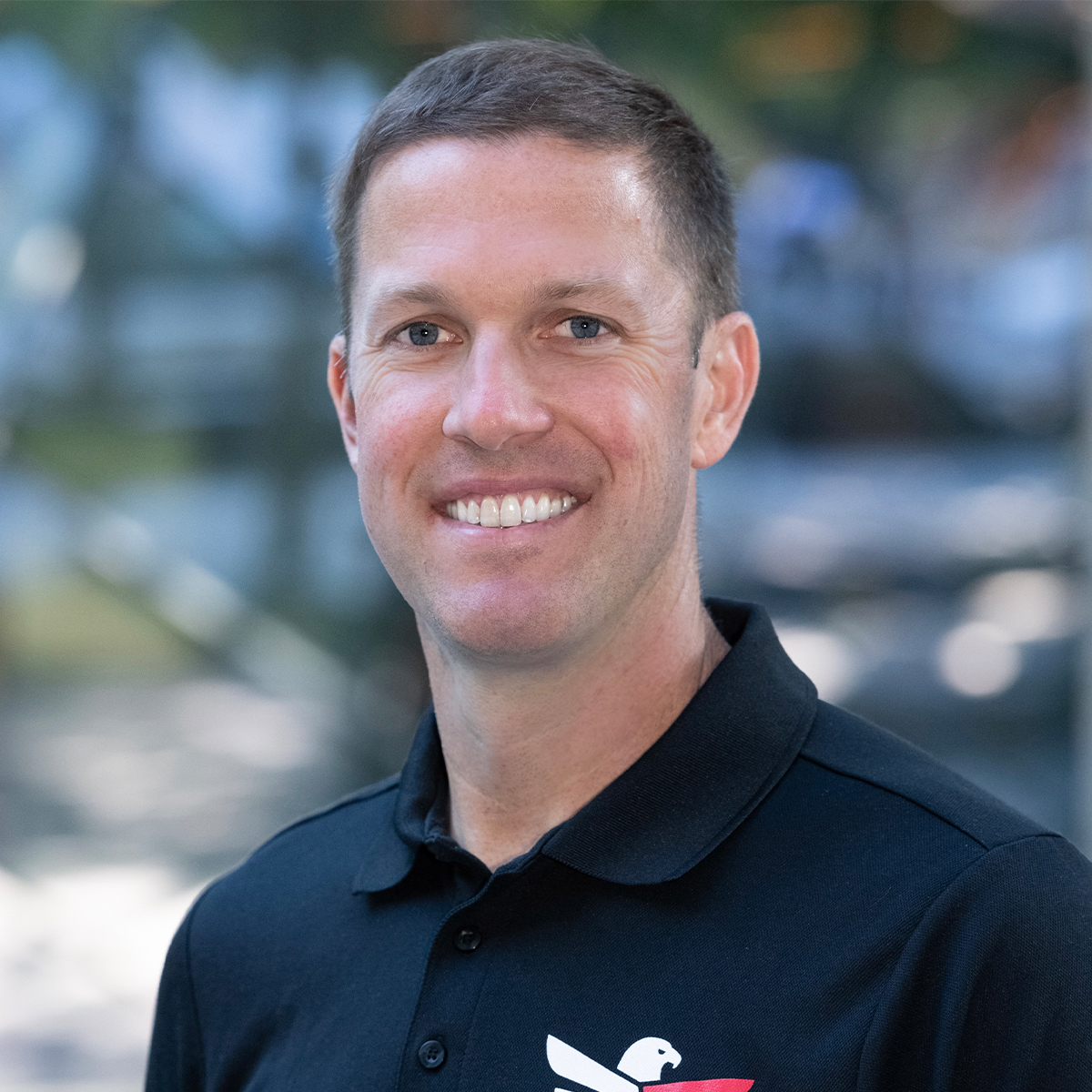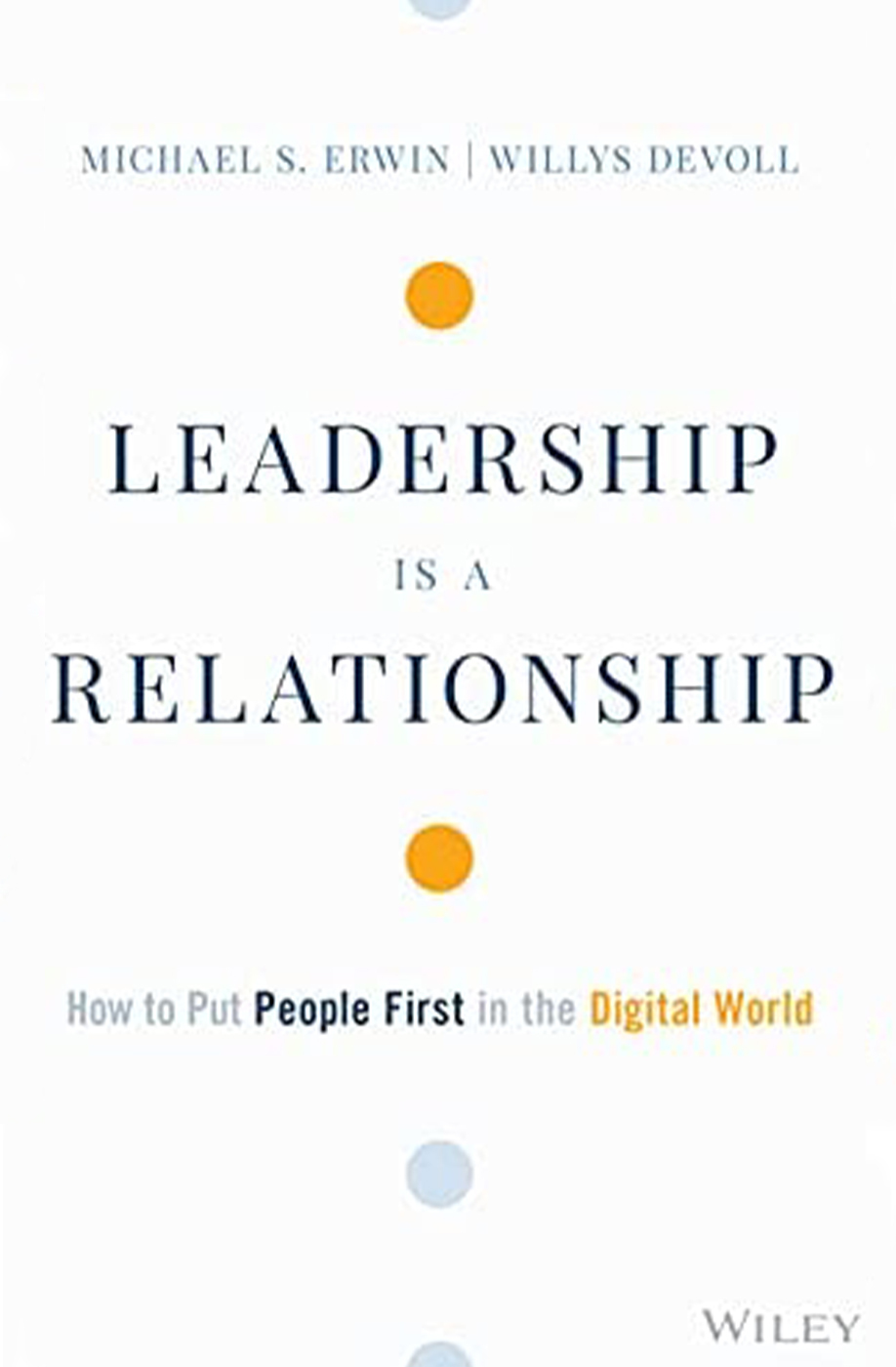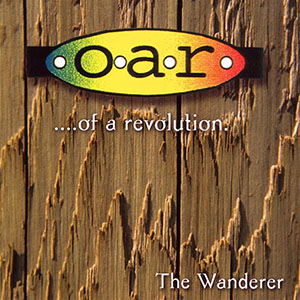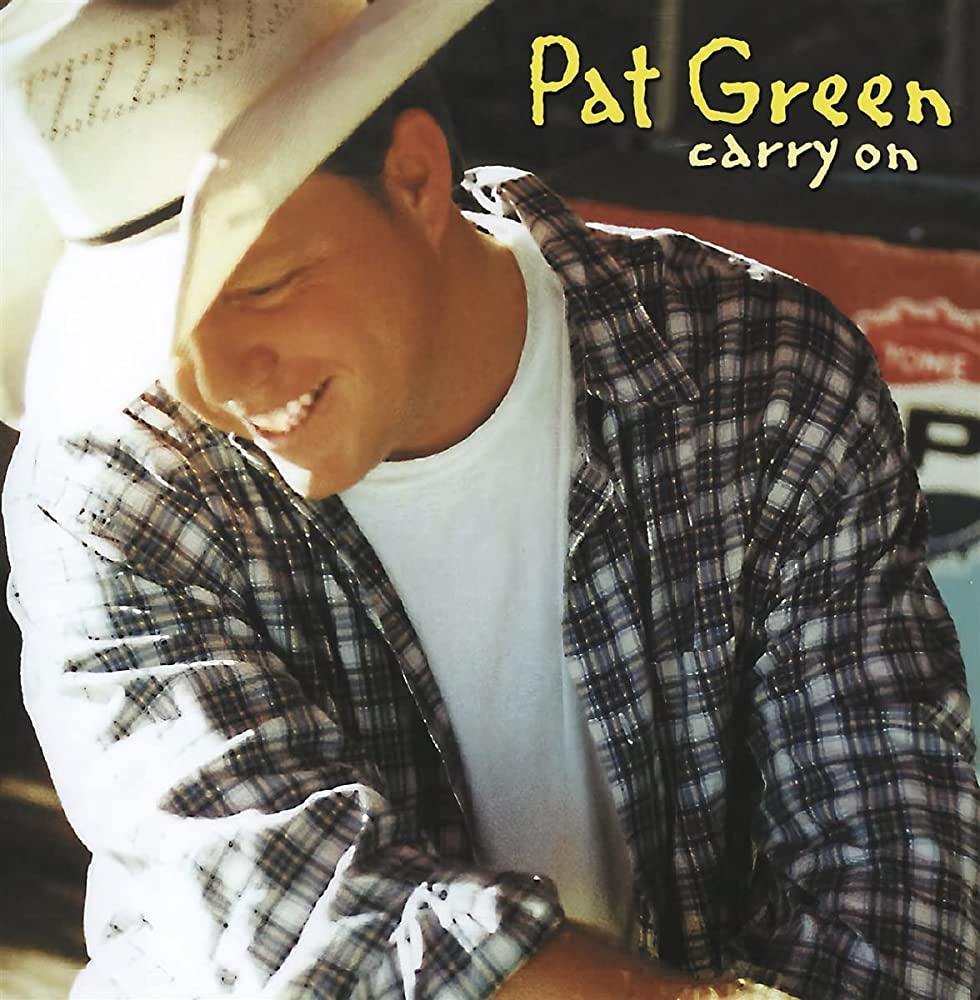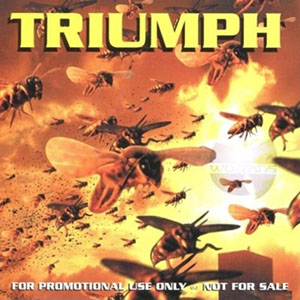Barrett Guillen: Hey y’all, this is Barrett Guillen. I’m back with Mike Erwin part two. I told you the first one was going to be so good. I’m going to let Brené take it from here, but here’s part two, Brené Brown, Mike Erwin, on Dare to Lead.
[music]
Brené Brown: Hi everyone, I’m Brené Brown, and this is Dare to Lead. Today I’m talking to Mike Erwin, who is the founder and CEO of the Character & Leadership Center, Team Red, White & Blue, and The Positivity Project. He’s also the co-author of Lead Yourself First, which focuses on how solitude strengthens people’s character and their ability to lead with clarity, balance, and conviction. We’re talking today about his new book Leadership is a Relationship which is about seven functions of relationship building. And whether you’re a leader or you’re thinking about your family, you’re thinking about friends, it’s a really beautiful conversation about the importance of prioritizing our relationships as people and also as leaders. I’m glad y’all are here.
[music]
BB: Before we get started, let me tell you a little bit about Mike. He is a leader who has dedicated his life to serving the nation and empowering people to build positive relationships and become more resilient in community. And I met Mike 10, 12 years ago at West Point when I went to do some leadership work with the cadets and then met Mike and spent some time with Mike and we’ve been friends since. I’ve done some work with Team Red, White & Blue, the veterans group with him, and he’s just an incredibly dynamic, smart, funny, loving person. Mike is a 2002 graduate of the US Military Academy at West Point. He has a bachelor’s degree in economics. He was commissioned as an Intelligence Officer. He served three combat tours with the 1st Cavalry Division and 3rd Special Forces Group Airborne. And he has earned two Bronze Star Medals from these tours. He attended the University of Michigan where he earned a master’s degree in positive psychology. He continues to proudly serve the nation as a Lieutenant Colonel in the US Army Reserves, assigned to the US Military Academy as an Assistant Professor. Let’s jump into the conversation.
[music]
BB: All right. We’re back for our second episode. I have so many thoughts. Okay. Trust, so here’s what you write. You know, I love the trust chapter because it’s got the V-word in it.
[laughter]
BB: It’s got lots of vulnerability, come on.
Mike Erwin: Yes. [chuckle]
BB: “Be forthcoming with your own vulnerability and use language that equalizes you and the people around you. Speak intentionally to humble yourself and build trust.” One big lesson, strip away unnecessary formalities and process to build intimacy and shared trust. What do you have if you don’t have trust?
ME: Absolutely. Pretty interesting coming from someone from the military, right, where there’s all this rank and this structure and all that.
BB: Yeah, I thought about that.
ME: And a powerful story there is we interviewed Bob McDonald, former CEO of Procter & Gamble and Secretary of the VA under President Obama, a personal mentor of mine and a friend. All he did is, “Call me Bob.” When he stepped into the Secretary role for the VA, which is one of the largest federal agencies, over 300,000 employees, and he really tried to say, “Look, if you’re going to sit there and view me as the Secretary and have all these formalities and all that, how are you supposed to ever trust me that I’m working on your behalf?” And so, it doesn’t mean that there’s not a place for formality. Of course, there is. There’s certain places when it’s important to know. But Bob, as he pointed out, said, “Everyone knows I’m the Secretary. Why do you even have to call me the Secretary?” And I thought that was really powerful because… And this goes back actually to a big learning point from Lead Yourself First, with the first book, we talk a lot about humility and a lot about the importance for leaders to know that really without other people, you’re not a leader. Leadership by definition…
BB: By definition. Right.
ME: Right, requires other people. And so, if you put yourself up on some pedestal, which as we all know, leaders are prone to do because so many people are often telling you how great you are and how important you are to the organization, you can start to believe the hype. And bringing that lesson forward to this, I really think that humility also matters here. It’s very difficult. I see so few instances when someone has trust in a leader who is arrogant or who doesn’t have the humility to know that, “Guess what? I breathe the same air that you do. I bleed red. I still need food and water. And that, yes, I might be up here in terms of the rank or how long I’ve been with the organization, but I’m still a human being.” And I think that having that default mindset allows you to connect better and build stronger relationships with people across the organization, regardless of how long they’ve been there or what their role is.
BB: I did some work with the Air Force, and we took a group of folks, new squadron commanders, through Dare to Lead. And when we got there, the General who was over the base had everyone seated, but not by rank, everyone was mixed up. And boy, you could tell it was super uncomfortable for folks.
[chuckle]
ME: Yeah.
BB: And I said, you know me, I’m just going to ask, like “What do I call you?” And he just told me his call sign. He said, “This.” And I said, “What do I call everybody else?” And he goes, “Well, their call signs.” And he said, “We can’t do this work around vulnerability and trust in Dare to Lead. Rank will get in the way.” And he said… So it was, I thought… I kept thinking of him when I was reading this. And I also thought about him when he said… I was scared to mention to him that there was this new finding in the Dare to Lead research that said, “Care for, and connection with the people we lead is an irreducible requirement.” And I was like this is not going to go over well because these are fighter pilots and they’re going to tell me, “Well, you don’t have to care for me, just have to follow directions or whatever.” And he said, “That’s a very low bar for us.” And I said, “What?” And he goes, “Our bar is affection. We insist that you have affection for the people you lead.” So, when I saw love in your book, I wasn’t surprised, you have to care for people.
ME: Totally. And we see this outside Fort Bragg, some of the most elite special forces soldiers in the world are my friends, and they use the word love. They use these words trust all the time. It’s just a foundational part of how they think about one another, absolutely.
BB: I want to get some teaching from you on this: “Seemingly trivial changes to the words we use can build or erode trust.” Say more.
ME: So, I think about this a lot through the lens of the trainings I would lead at The Positivity Project actually. It is something that we heard a lot from teachers in conversations with them. And I started thinking about the application in my own life as a parent but think about the difference in the language. You want the same outcome; you want your child to eat their food at the table instead of at the couch. And it’s, “Stop eating on the couch, get in there,” or “Can you please go eat at the table?” You’re trying to drive the same behavior outcome but the words that you choose to use, they land so differently. And it’s not saying that… Of course, you have to use times when you tell people “Stop doing this” or “Don’t do this,” but big believer in the power of affirmational language and telling people what you want to see from them, versus what you want to see them stop doing.
BB: 100%.
ME: And it’s not easy, but it’s something that’s trainable. And over time, you can work at it. And you’ll catch yourself slip up and say, “Oh, geez, I should have said that better.” But when you use that as language of what you want to see, I think that’s the language that builds trust and connection between people. Because again, I don’t know how to describe it, I don’t know the neuroscience behind it, but it’s just… It lands differently when you’re telling people the positive thing you want them to do, versus the negative thing you want them to stop doing, like stop bragging versus show humility.
BB: And I think there’s a lot of neuroscience behind it. I think you see that air traffic controllers are notorious globally for not talking about barriers or stopping doing things but directing to where we want people to go. And I remember, Steve and I met coaching swimming. And I was over the lifeguards. And I remember telling them, and I don’t know where I learned it, but when you whistle, I don’t want to hear any, “Stop running, stop running, stop running,” as opposed to whistle, “Walk, please. Walk, please.” And you could literally see when you blew a whistle, all the kids stopped. And if you said, “Don’t run,” they would look at you and then just start running. And if you blew the whistle and said, “Walk, please,” they look at you and they start walking. Yeah, so I think language and trust is huge.
ME: So much more effective.
BB: So much more effective. I think it’s about calling attention to the behavior you want, versus calling attention to what you want to stop. It just doesn’t make neurological sense, I don’t think.
ME: Agreed.
BB: Okay. Coalition building. Patient and mission-driven people do the slow work of pulling people together and keeping them bound as they work toward ambitious change. Tell me, can you build coalition without relationship?
ME: No.
BB: No.
ME: Yeah, you definitely can’t. And this is tricky, because we live in a world where often things do need to happen quickly in certain places. And we know, Brené, obviously that you can over-consensus build. To your point, you may never get full buy-in from everybody on something, especially that’s a big, bold, audacious operation or a big change. But I do think that when we invest in the relationships and we know that we need to bring people who have different opinions of one another and of what should happen here, when you bring people together, and in the case there, you drink tea, you go for a run together, you just sit down and talk about things, soccer, whatever… You find that common ground, people start to see, “Okay, this idea that you have, I can maybe get along with that. I can get on board with that.” And so, I think that, again, the relationships are foundational to be able to bring different people in different groups together to achieve that common outcome.
BB: Okay. The next one I know is so big for you, is so big for me, but it’s got an underbelly that we’re going to have to talk about too.
ME: Yeah.
BB: So, loyalty.
ME: Oh yeah.
BB: So you write, if loyalty can be the glue that holds us together, it can also be bastardized to trap people in dysfunctional, frustrating, or even abusive situations, all in the supposed name of fidelity. “Loyalty compounds when people don’t just pay favors back, but also decide to pass the loyalty that they were shown onward.” So, what is and what isn’t loyalty?
ME: Yeah, this is such a complicated topic and deep underbelly, and obviously, we try to shed some light on it through the stories and through some of the narrative. But you just think of the problems that emerge when you may be loyal to someone, the idea of loyal to a fault. And there’s some amazing stories. One of my friends shared with me, the other day, a powerful story of somebody who had essentially saved one of his friend’s life, and how he was loyal to that person for the rest of his life because of what he had done. We think about this often in terms of military and veterans and the loyalty that we often show to each other because of the common sacrifice that we made on a deployment. But there is, there’s obviously a dark side to this, and people can manipulate, and they can keep people and string them along, and they can harness the relationship they have with them to keep them loyal for their own good, not the good of that person.
BB: That’s the difference, right?
ME: Totally. For me, that’s where I split it there, is it’s, are you really interested in the person you have relationship with or the group that you have relationship with? Are you really interested in them, their best interest in achieving their full potential? Or you’re really interested in leveraging them to help you to accomplish what it is that you want? And it’s really hard because there’s sometimes, I think, a very thin line between that because loyalty is such a powerful emotional force in certain environments.
BB: Yeah. When I was reading this, I think about some of the theory building I did in the back of Atlas of the Heart, and I came to this way of thinking about other-focused loyalty and self-focused loyalty. And that other-focused loyalty can be a powerful and amazing thing. But the people who I’m loyal to, I also hold accountable. I also give and want to receive forgiveness. And so, it’s like, when loyalty starts to move us out of our values, it actually becomes transactional, not relational.
ME: Yes, that is so powerful. And literally, before our conversation today, as I’m out there walking, doing the chores and try and get my mind calm and be thinking, that’s the phrase I kept coming back to, that the world in many cases has become more transactional and less relational.
BB: For sure.
ME: And that’s why we wrote this book, because it’s deeply concerning to me. And look, some things in life have to be transactional, when you think about leadership, it transcends transactional. It’s about inspiration. It’s about connection. It’s about something deeper than that. And I think that goes right to your point that you just made about loyalty.
BB: Yeah. And it’s interesting because we think about the whole subtitle of the book is How to Put People First in the Digital World. I think about the mythology that the digital world, social media platforms are connecting platforms. They’re not, they’re communication platforms. We can communicate with each other on them. But connection requires something far more complex. I always think about, if something really hard happened and you and I were close friends and let’s say I lost my job and I go on Facebook and said, “Hey, everybody, I lost my job today.” I can get a lot of people communicating back, like, “Oh, I’m so sorry, that sucks. Screw your boss or whatever.” But the vulnerability and humility it takes to pick up the phone and say, “Hey, Mike, it’s Brené. Do you have a few minutes? I’m really having a hard time.” And you saying, “Yeah, what’s going on?” There’s an emotional exposure and a vulnerability to communicating and to relationship that is completely flattened when it’s just communicating. It’s absent, the electricity of relationship.
ME: So deep. Yeah. And that is so powerful. And I think that that’s where social media and all these other things, these platforms, like you said, they’re communication tools.
BB: Yeah.
ME: And I think that in many ways, it makes a lot of us think that, “Hey, I’ve done my piece. I’ve made my comment on that post or maybe even sent a text message or a DM to somebody,” but ultimately, people need more than that, they need… And I think about the powerful story that then Lieutenant General Frank Kearney as Team Red, White & Blue is getting off the ground, he talked about… He told the story of when he was there and a family had just lost their child to an IED roadside bomb in Iraq, and he said, I’ll never forget the exact words, “On the day that they need someone to come up and wrap their arms around them and give them a hug, on the day they need that more than ever in their life, no one does it because they’re afraid they might say the wrong thing.”
BB: That’s right.
ME: I remember that just hitting everybody in the audience there right between the eyes with like, “Wow.” But this is exactly the thing, the conversation going beyond just the post is so critical. And we’re going to bring this back to, again, the power of relationships. I think those next level steps are actually the thing we need to do to build relationships. And I think a lot of us think that we’re doing enough by simply making a comment, and I just don’t think that’s true.
BB: No. And the most generous thing I can say is, it’s a misunderstanding about what people need. And the least generous thing I can say is it’s chicken shit because picking up the phone or going to someone’s house who’s going through a very hard time is so excruciatingly vulnerable.
ME: Totally. Very difficult.
BB: There’s some hard stuff. All right. I am going to reach for this quote, but first we’re going to talk about stability. This is the last of the seven. Boy, this was really helpful for me. This was so helpful for me. You write, “Stability is about creating a culture and giving people a healthy environment in which to grow.” I’m going into my book, into my little tag here. I’m on page 134. I got you all marked up, Mike.
[chuckle]
BB: I got you all marked up.
ME: Humbling.
BB: Why are you laughing? Y’all can’t see him, but he’s laughing.
ME: Why I’m laughing? Just because it’s pretty humbling that Brené Brown’s read your book and has marked it all up, and it’s pretty cool.
BB: I’m going to read this and then I want to read something from our friend Jim Collins.
ME: Yes.
BB: So, you write, “Love shared between people is a powerful stabilizing force. Our relationships ground us in our commitment to each other, even as our circumstances become uncertain or quickly change.” Okay. I want to read something to you. Sometimes I hate reading this because it’s so daunting, because you know Jim.
ME: Yes. [chuckle]
BB: He doesn’t mess around.
ME: No.
BB: He quotes Edward T. O’Donnell, a professor of History that says, “History is the study of surprises.” Jim writes, “We are living history, surprise after surprise after surprise. And just when we think we’ve had all the big surprises for a while, along comes another one. If the first two decades of the 21st century have taught us anything, it’s that uncertainty is chronic, instability is permanent, disruption is common, and we can neither predict nor govern events.” As I was reading your book… I mean, that’s scary, that scares everybody shitless, including myself, right? Scary.
ME: Totally.
BB: Relationships are such a balm for this. It’s such a healing antidote to this. You’re not saying that relationships will make the world more stable. I think what you’re saying is they’ll make us more stable in a world that seems to have gone nuts.
ME: Yeah, that’s unstable. Yeah.
BB: Is that what you’re saying?
ME: Yeah, absolutely. You’ve heard the phrase before from the military, it’s called the VUCA environment, volatile, unpredictable, chaotic, and ambiguous. Those four terms, they all seem like they’re cousins or they’re related to each other, but string them together and you’re really talking about the fog of war. I think that with the pace of change, automation, technology, all the things happening, I just think there’s this chronic instability. I think that’s a pretty safe bet. And so, that’s exactly it. The relationship, it provides the stability to us amid all of the changing things. Again, some of the examples we talked about in the story, but one of them is actually one of my personal friends here, the Capps family, and talking about how through all the instability of the deployments and everything going on, how important the relationship was to keep one another as leaders and as members of the family as stable as possible amid all of the things going on around you. And it’s, as you said, Brené, and you just read that there, it’s daunting, and it can feel overwhelming, and it can feel just overpowering. But I keep coming back to the importance of relationships in helping us to navigate through that, fellow human beings in leadership roles, but also in our personal lives, our relationships are so important to help us to navigate through all of that volatility.
[music]
BB: Okay. Before we go to the rapid fire, I’m going to read this quote from you one more time because it’s my favorite quote in the book. “Love shared between people is a powerful stabilizing force. Our relationships ground us in our commitments to each other, even as our circumstances become uncertain or quickly change.” Wow.
ME: Yeah. Thank you. That sounds even better when you read it and say it. [laughter] You have no idea.
BB: And let me just go on to say this. This is the big lesson from there, I have it highlighted, but no need because it’s in a box. Again, for readers who like the box and the callout, you’re going to love this. “Giving people permission to act like human beings is possible even in highly pressurized, high attrition environments. Prioritizing relationship building and decency is often the best way to counteract that kind of culture and create healthy stability amid chaos.” Because you write, “Stability isn’t just about minimizing turnover. It’s about creating a culture that’s calm, healthy, and productive for the people in it, whether they stay there forever or not.”
ME: Yeah. That’s exactly right.
BB: Wow.
ME: And it is. Some of these things kind of sound like perhaps Pollyanna or a pipe dream, like, “Hey, are you… Can you really create a stable environment amid all… ” And it’s not suggesting that relationships is this magic wand and everything is perfect if you can really prioritize and work on and build strong relationships, but I think it helps a lot in helping to deal with all of these challenges that we as leaders and we as human beings face on the daily.
BB: Yeah, I’ve been thinking about this a lot because I think one of the reasons why so many of us are still not really back in our skin and completely okay coming out of the pandemic and the racial reckoning is that, the pandemic was that chaotic, scary, uncertain environment that separated some of us. So, the stabilizing force of relationship was also threatened in that in some ways. And I tell people all the time, because I’ll go and talk to big companies and they’ll say, “People are not okay.” And I said, “No, people are not okay because if people were okay coming out of this and there were no bruises and scratches and stretch marks from this, then that would tell me that relationship and connection is not important. We’re not okay because it is everything.”
ME: Yeah, absolutely.
BB: And we’re putting it back together again.
ME: Yeah. And as you said there, it’s a process. It’s a process to put it back together.
BB: Yes.
ME: And as you’ve talked about in some of your writings since, but some people lost loved ones…
BB: Yes.
ME: Who they never got to say goodbye to. There’s a lot of those things that happened in that window. But beyond that is just the separation. And I think that you don’t just go up, you’re going to go turn the light switch back on and everything’s back at it. It takes time to reestablish it. And I think that a lot of people, as you just said, are still very much on that journey back.
BB: Yeah. And I don’t think the book is Pollyanna because you’re pretty clear throughout the book. This is almost subversive, resource-heavy lift. You just say it’s worth it.
ME: Yeah, totally. That’s the big takeaway, right, is that it’s hard.
[laughter]
BB: Yeah. Yeah.
ME: It’s difficult, but it’s worth the effort. And summed up in one basically sentence, that’s it, it’s worth all of the stress and the struggles and the emotional roller-coaster, and all the things that come with leaning in and really engaging deeply with other human beings, It’s worth it.
BB: It’s worth it. So, one time many years ago, I was trying to train for a 5K…
[laughter]
BB: Because this real-pain-in-the-ass guy who was running this veterans organization called Team Red, White & Blue, and we were going to train a bunch of their folks said that, “In addition to training their folks, they were going to start the day with a 5K.” And then I said, “Well, that’s nice. We’ll meet you afterwards.” And he said, “You don’t have to run it with us, but it’d be really great. You could walk it. I mean there’ll be people there with double amputations and in wheelchairs, but if you don’t want to go, you don’t need to go.” And I was like, “God dang it.” I was like, “Okay, I’ll do it.” And then I called this guy about two weeks before it and I said, “This is bullshit. This is not working. I can’t do it. I cannot propel my way forward for five kilometers, it’s just too hard.” And then he said, “Ma’am, it’s not supposed to be easy. You just need to embrace the suck.” And so, I ran through my neighborhood for the next two or three weeks embracing the suck… And actually chanting, “Embrace the suck, embrace the suck.”
[laughter]
BB: And then I ran it, with none other than right here, Mike Erwin, who was the man in question. So, when I think about… He’s laughing really hard, y’all can’t see him. Do you remember this conversation?
ME: Oh, I do. I do. Absolutely. And I tell you, there’s certain conversations that stick with you and that was one of them because I remember it registered, the idea of “Embrace the suck.” I remember it actually seemed to make a difference. And I was like, yeah… I don’t know, I was just probably talking in my motivational, teaching cadet mindset. I probably just finished teaching up at West Point, but I do. And I’m so proud that we still have that picture of you, in… You wearing your Team Red, White & Blue shirt across, just… It was awesome.
BB: Yeah. You know what motivated me the most is when he said, “Don’t worry, if you decide to walk it, we’ll circle back for you. We don’t leave people behind.” I was like, “This is bullshit.” I was like, “I’m going, I’m running.” And then I made Barrett do it with me. [laughter] She was like, “This is your weird relationship with Mike Erwin, not mine.” I was like, “Embrace the suck.”
ME: So proud of you, Brené.
BB: But now I talk about embrace the suck and I tell the story all the time when I talk about vulnerability. But I feel like you’re saying the same thing here again, relationships are hard. They’re messy. They’re unpredictable. We risk getting hurt. We risk being misunderstood. We have to dig deep for forgiveness and grace for ourselves and other people but embrace the suck because it’s worth it. It’s all there really is.
ME: Yep. You just summed it up right there. That was awesome.
BB: You ready for the rapid fire?
ME: Sure. Absolutely.
BB: I wanted this to be payback and make it really hard, but I couldn’t, but…
ME: Yes. [chuckle]
BB: Okay. You ready?
ME: Yes.
BB: Fill in the blank for me, vulnerability is.
ME: Sacrificing our personal comfort for the good of others.
BB: Dang. What’s one piece of leadership advice that you’ve been given that’s so remarkable you need to share it with us or so shitty you need to warn us?
ME: Oh, geez. Well, I’ve got a lot, in both categories. [chuckle] For me, I go back to Jim Collins and as you know, I had an opportunity to spend time with him at West Point over a two-year period, but I love his thoughts on Level 5 leadership that it’s really about having personal humility, but a relentless commitment and drive for the mission and for the people that you’re on that mission with.
BB: God, I really love that. Okay, ready? Last TV show you binged and loved.
ME: Oh, geez. I am not very much in the TV phase of my life right now with the age of my kids.
BB: You have five kids, how old are they?
ME: Yes. They’re two to 12. So…
BB: You’re not watching any TV.
ME: No. No, not much, but the one… I’m old-school, I would say The Office. If I watch one, it would be The Office.
[laughter]
BB: Favorite concert?
ME: Favorite concert I’ve ever been to?
BB: Yes.
ME: This will resonate from a Texan standpoint, but Pat Green. I went to Pat Green in his heyday when I was a lieutenant at Fort Hood, 2004. It was just some epic big place outside of Austin in Hill Country. And they actually recorded the video for “Carry On” at that concert, and he played it six or seven times. But Pat Green was… The energy in those concerts was absolutely amazing in the early 2000s.
BB: Oh my God. I love Pat Green so much. Such a Texan… Okay. Favorite meal?
ME: My favorite meal is homemade spaghetti and meatballs. We do that here every Sunday night. My daughters, they make homemade pasta and homemade meatballs and, yeah, it’s awesome.
BB: Wow. Okay. What is the leadership lesson, the really hard one, that you have to keep learning and relearning and unlearning because the universe keeps putting it in front of you?
ME: Oh, geez. [chuckle] So, how much time do you have? I would say that, and I think it’s the soul of both of my books, Lead Yourself First and Leadership is a Relationship, but I need to relearn that I can’t keep up with the pace of life because no matter what, there’s always so much to do and so many things going on, and so, I need to relearn the lesson to slow down, to think and reflect and focus enough in a given day. For example, in preparation for our conversation today, needing to actually have a barrier of time. And at the same time, to be able to step away from the work and the pace of life to be fully present and focus on the people in front of me. And this is something that I just… The phone’s there, it’s a temptation. And sometimes when you get to a point in a conversation with a family member or a friend or teammate, you pick up your phone and you start looking for something to give you a dopamine splash. I think that’s really it for me, it’s, I need to keep relearning those lessons of stepping back from the pace of life.
BB: God. Me too, my friend. What’s one thing that you’re really deeply grateful for right now?
ME: Oh, geez. I actually just watched a video that I actually made a comment on this on my stories, but it was Thanksgiving and it was about… They went to all the players from the US Men’s National Team and they asked, “What are you grateful for?” And I heard they showed the video to nine players, and literally for all of them, “My family and my friends, my family and my friends, my parents, my family… ” People. The answer to that question is people, the family, the friends, the teammates, the people who I get to do life with and whether it’s here on my homestead or with Team Red, White & Blue, or The Positivity Project, or anything I’m involved in, I’m just grateful for the people that I’m on the journey with.
BB: I love that. Okay. We asked you for five songs you couldn’t live without.
ME: Yes.
BB: Here we go.
ME: Very eclectic. [laughter]
BB: Yes. “A Crazy Game of Poker” by O.A.R., “Triumph” by the Wu-Tang Clan.
ME: Yeah.
BB: “Levels” by Avicii, “Battle Belongs” by Phil Wickham, and “Carry On” by Pat Green. In one sentence, what does this mini mixtape say about Mike Erwin?
ME: Ooh. In one sentence. I am a person with a wide range of passions who tackles challenges before me with enthusiasm.
BB: I can vouch for that, y’all. [laughter]
ME: I love music for the energy it gives. And whether it’s Christian music or Texas country or house or hip-hop or rock and roll, I just… The one requirement is for it to give me energy. And all those songs are ones that if it were to come on right now, I just would… My energy level would up by about 20 points.
BB: I love this. Thank you so much for spending this time with us. Thank you for Leadership is a Relationship. I think you can take every lesson from here and apply it…. when I think about these seven things in here, accountability, stability, forgiveness, trust, this is what I want with my kids, with my partner. These are the benefits of investing in relationships across the board.
ME: Absolutely. Absolutely. And I think, what I really love about this whole conversation, beyond the chance to be able to catch up and just spend an hour, it’s a true honor. Hearing how you distilled it down about 10, 15 minutes ago, these things are… They’re hard, but they’re worth it. Relationships are hard and connecting with other people is challenging and difficult, but it’s worth it. And that’s really the number one message that I want people to take from the book. When you’re in a leadership role, and it looks so different depending on what chapter of life you’re in and where you’re at and what’s going on, but to invest in and to take the time and the energy and the effort to pour into other people, to allow them to pour into you, that is the true richness and the joy of life. And I’ll just point that back to the research of positive psychology and what I learned from my late mentor Dr. Chris Peterson, he would say, “I can sum up all the research of positive psychology in three words, other people matter, period.”
BB: Oh, my God.
ME: Anything you do that builds relationships in and among people is going to make you happy. And those words, they ring in my ears every day. They remind me that that difficult conversation or that bad interaction or that amazing experience I had with someone, it’s all a part of the beauty and the stress and the chaos, but the beauty of life.
BB: I love it. Mike Erwin, thank you so much. And such a pleasure to talk to you, to see your face again, to catch up.
ME: Yes. Well, thank you, Brené, I really appreciate the opportunity to have this conversation today.
[music]
BB: That’s it really, y’all. I mean this is it. Relationships, embrace the suck. They’re hard, but you can’t give up on people because we’re all we have. You can find all of Mike’s books wherever you like to buy books. We’ll put links to everything on the episode page, also how you can find Mike, some of his papers on brenebrown.com. We are grateful that you’re here with us. Love, love and stability, I’ll take both. Stay awkward, brave and kind, y’all.
[music]
BB: The Dare to Lead podcast is a Spotify original from Parcast. It’s hosted by me, Brené Brown, produced by Max Cutler, Kristen Acevedo, Carleigh Madden, and Tristan McNeil, and by Weird Lucy Productions. Sound designed by Tristan McNeil, and the music is by The Suffers.
[music]
© 2022 Brené Brown Education and Research Group, LLC. All rights reserved.




